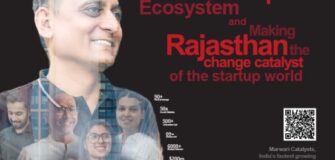JNU Forms Panel to Explore In-House Entrance for PhD
Share

Jawaharlal Nehru University has established a committee to assess the feasibility of administering an entrance test in-house for some PhD programs-specifically Korean language, arts and aesthetics, and labor studies-the university officials confirmed on Tuesday. The decision follows the delay in admissions and more severe irregularities in centrally managed examinations like UGC-NET JRF and CUET.
This is expected to be one-time measure as these particular subjects are not included under University Grants Commission’s (UGC) National Eligibility Test (NET). Hence, JNU is looking for alternative in the admission in the same. Committee, headed by Professor Shoba Sivasankaran, Dean, School of Language, held its meeting on Monday and will regroup soon to decide next course of action.
The university is prompted to consider this option due to the uncertainty that has been attached to the three PhD programs, especially now that the current admission cycle is to close on December 4. This has left applicants worried about their future due to the frustrations and delays in the process.
Earlier, JNU conducted entrance exams for PhD admissions- Jawaharlal Nehru University Entrance Examination (JNUEE). Later, following the National Education Policy as well as the rollout of the Common University Entrance Test-CUET for admissions to under graduate and post graduate admissions, the process for students seeking admission to Ph.D, was changed with admitting its students through UGC-NET. Yet, now this has given way to problems in the latest years such that several programs have been greatly delayed to admit students to them.
The delay in admitting PhD students this year has been attributed to problems with exams managed centrally by the UGC-NET JRF and CUET. These anomalies rendered it impossible for JNU to continue following its usual admission protocols. The alternative solutions in such a case have thereby had to be considered at the university end.
The main choice under consideration of the committee is holding an in-house entrance test. The university authorities, however point out that the same would come with massive logistical and financial implications. Since the time at hand is limited, the exams so conducted might drain JNU’s resources. A second possible alternative would be to persuade the UGC to place these subjects on the list of NET exams; this option is expected to be quite lengthy and can further delay the admission cycle.
Another option being considered is entrance through the Junior Research Fellowship (JRF) scheme, but this would leave out candidates who have passed NET or those who are not NET-passed, which might bring in a smaller number of students.
As the committee discusses these options, it is now quite evident that the uncertainty regarding the admissions process might go beyond December 4. This will lead to more anxiety for the applicants who are waiting for a final decision on their application.
While the committee is trying to come out with a solution, JNU officials emphasize that this delay is due to factors that no one in the university control. The committee is likely to consider, soon, whether the exams are to be done within the campus or outside; the latter option seems probable and will delay even more the finalization of the admissions, putting lots of aspiring PhD students under pressure.
The students are eagerly waiting for the outcome of the committee’s deliberations as they hope for a speedy decision on the current uncertainty.


























